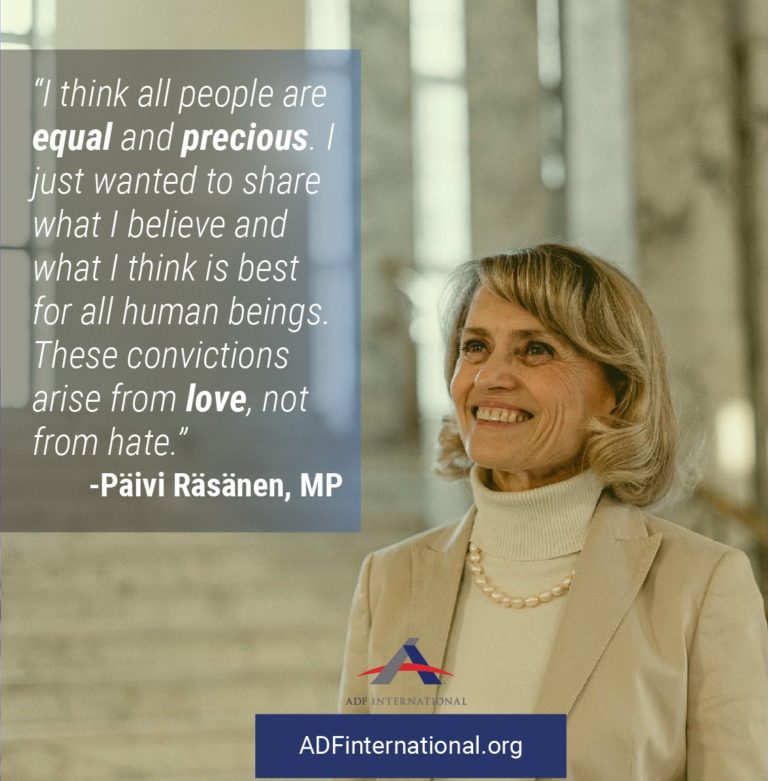
A Finnish politician is being sued by her country's courts for “hate speech” after she cited Bible verses defending the traditional conception of marriage as being between a man and a woman.
Several Christian parliamentarians denounce it as the “open war of the West against Christianity.”
“The content of my writings and speeches represents the classic Christian view of marriage and sexuality, the same that the ‘Christian churches’ have unanimously taught for two millennia.”
Päivi Räsänen does not intend to concede anything to those who are dragging her to court for the second time.
In question is a tweet published in 2019 by the Finnish MP, though it is not her first legal entanglement.
The 63-year-old Protestant mother was, however, unanimously acquitted at first instance in 2022, but the prosecution appealed this acquittal to the Helsinki Court of Appeals.
“If writings based on biblical teachings were to be condemned, it would mean a severe restriction of freedom of religion. It is natural that this raises concerns among Christians, both in Finland and abroad,” warned Päivi Räsänen, a few days before the trial which was held on August 31.
The verdict is expected by September 30, 2023.
Concerns relayed by 15 members of the American House of Representatives, who wrote an open letter on August 8 to defend the freedom of expression of Christians: “A Finnish prosecutor is determined to silence a member of parliament … and millions of Finnish Christians, on the grounds that they dare to publicly exercise their right to freedom of religion,” the letter explains.
“What is happening in Finland right now can happen in any country,” says Päivi Räsänen, while the Alliance for the Defense of International Freedom (ADF), which is defending the MP in Finnish courts, is alarmed that the “criminalization of certain ideas in the name of so-called 'hate speech' obscures any public debate and endangers democracy.”
But the challenge warns us to be ready to defend the freedom of expression and religion in “all the courts where the need will be felt, even at the European Court of Human Rights (ECHR) if necessary.”
